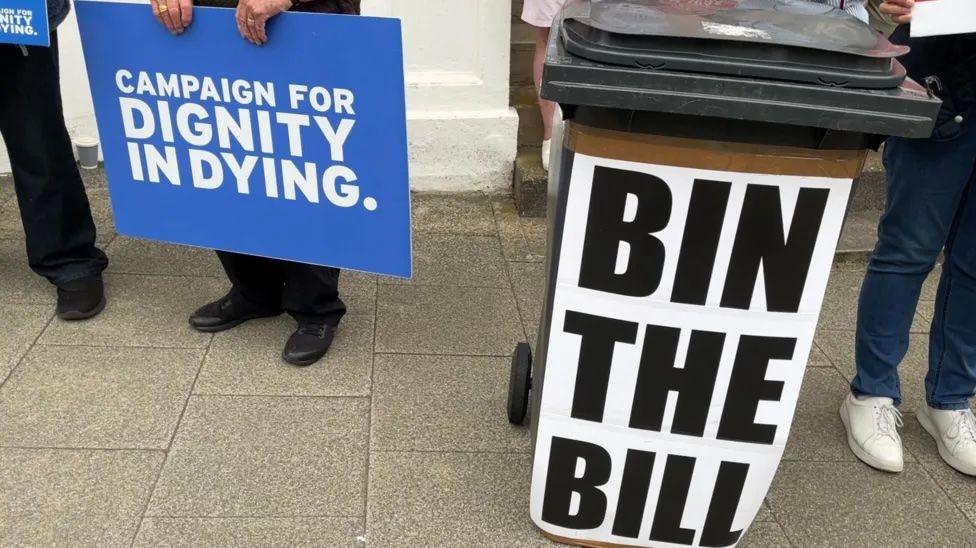Legislative Council progresses Assisted Dying Bill
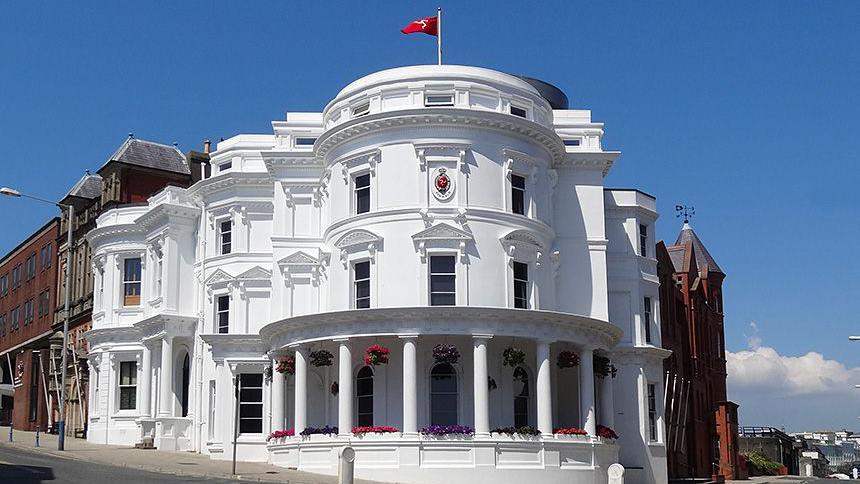
The Legislative Council sat for the first time since the summer recess on Tuesday
- Published
Proposed laws to give terminally ill adults the right to choose to end their own life have passed the first stage in the upper chamber of the Isle of Man's parliament.
The Assisted Dying Bill 2024 was brought forward for its Principles Stage in the Legislative Council by Peter Greenhill MLC following its passage through the House of Keys.
Moving the bill, Greenhill told the MLCs the proposed legislation was "about choice for those who are about to die".
Members voted in favour of an amendment proposed by Diane Kelsey MLC for the council to hear evidence before progressing to the Clauses Stage.
Kelsey suggested the upper chamber heard from movers of bills in other jurisdictions progressing similar legislation, including England and Wales and Scotland.
Exploring the differences in the private members bills presented to the UK Parliament since the Isle of Man bill was passed by the House of Keys in late July was "material to our scrutiny", she argued.
Under the provisions in Alex Allinson's private member's bill, adults with a prognosis of 12 months or less to live would be given the right to choose to die.
Those eligible would have to be over the age of 18, and have lived on the Isle of Man for five years.
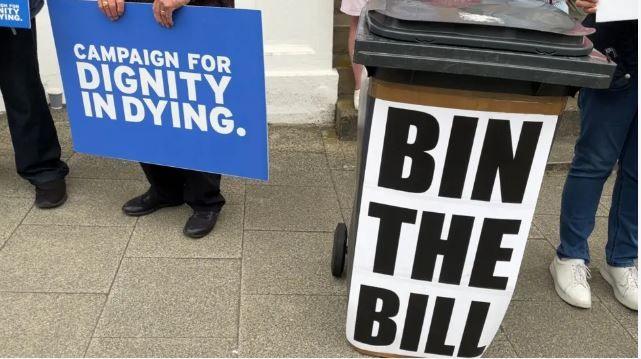
Campaigners for and against the bill both previously gathered outside the Tynwald buildings
But Paul Craine MLC voiced concerns about issues of coercion, whether there was a sufficient mandate from the public for the bill, as well as the doubts about the proposals raised by a number of medical professionals.
Echoing the calls for safeguards to prevent coercion, Dawn Kinnish MLC said it was something that should be considered at the evidence stage.
She also said a policy should be made to ensure the residency criteria of being of five years did not lead to discrimination based on the definition of "ordinarily resident".
While he said he agreed with that point, Rob Mercer MLC said there were already "significant controls" in the bill against coercion, such as strict eligibility criteria and psychological assessments from multiple professionals.
There were also maximum penalties of life in prison for anyone found guilty of attempting to cause the death of a terminally ill person, and up to 14 years for coercing someone into making a declaration, he added.
Greenhill said while it would be "good to understand" the proposed legislation in the UK, he was concerned about "opening up the table completely", and argued coercion had already been considered carefully in the House of Keys.
While MLCs have now debated the wider subject of the proposed legislation, witnesses will now be called to to give evidence before members discuss the specifics of the bill in more detail at the clauses stage.
Why not follow BBC Isle of Man on Facebook, external, and X, external? You can also send story ideas to IsleofMan@bbc.co.uk
Related topics
- Published23 July 2024
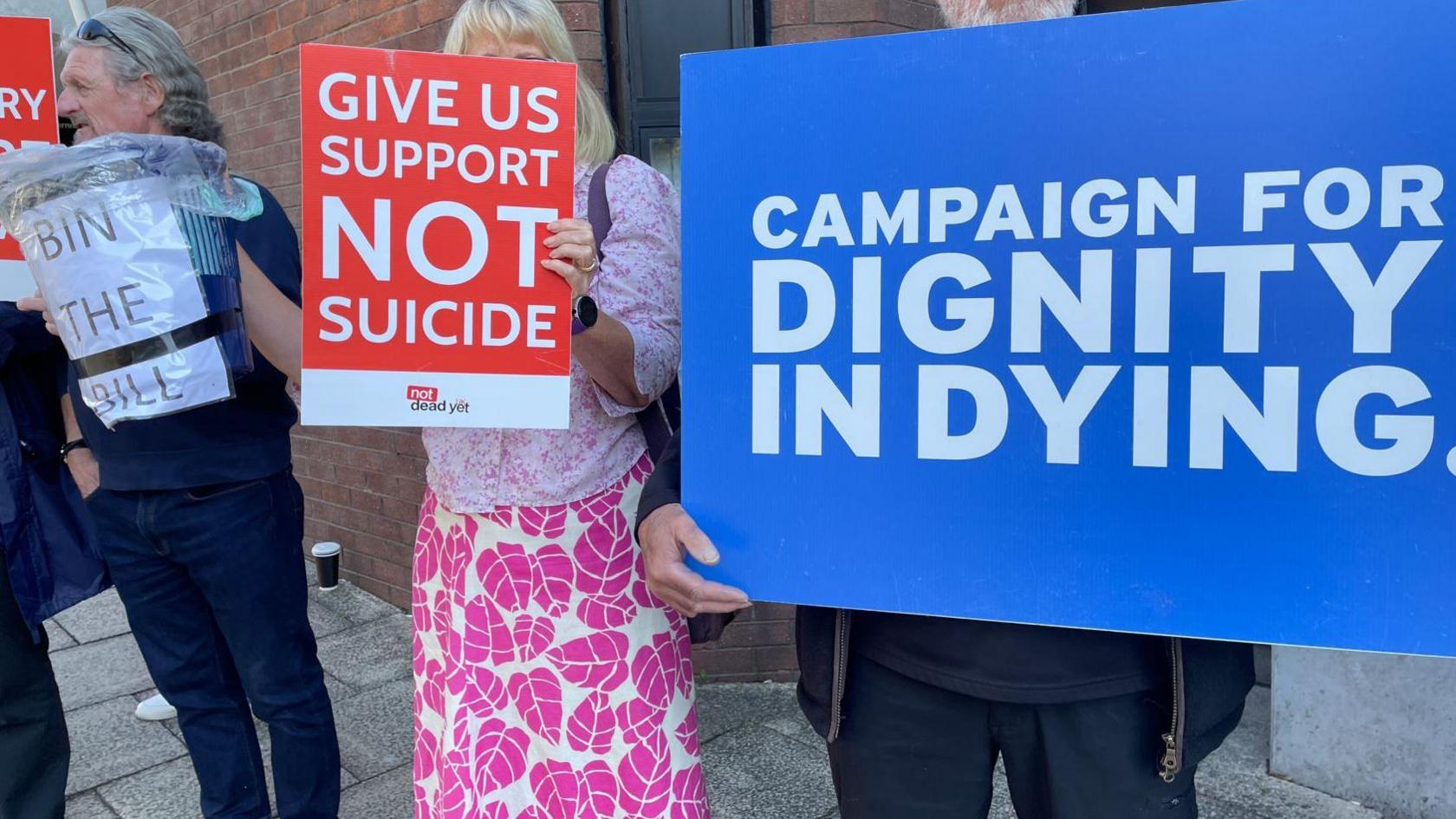
- Published23 July 2024
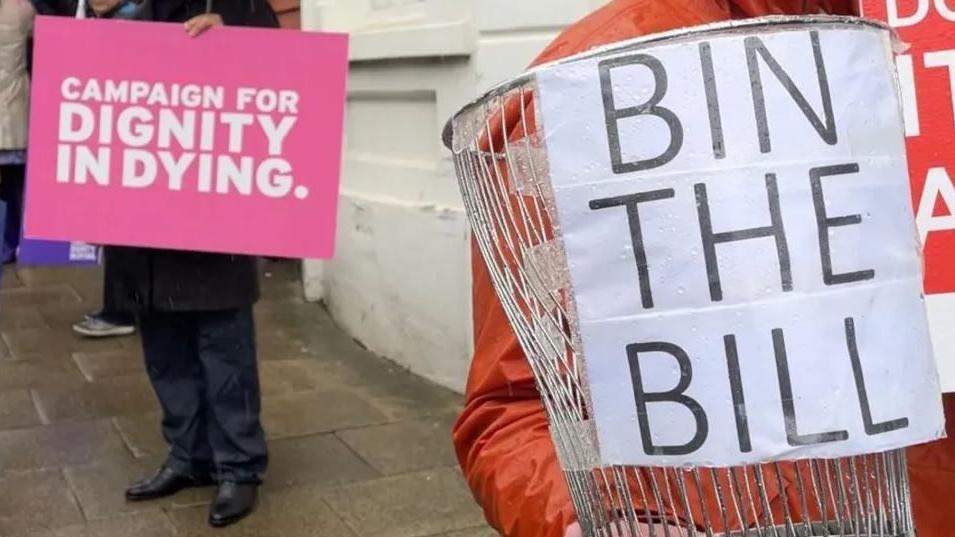
- Published9 July 2024
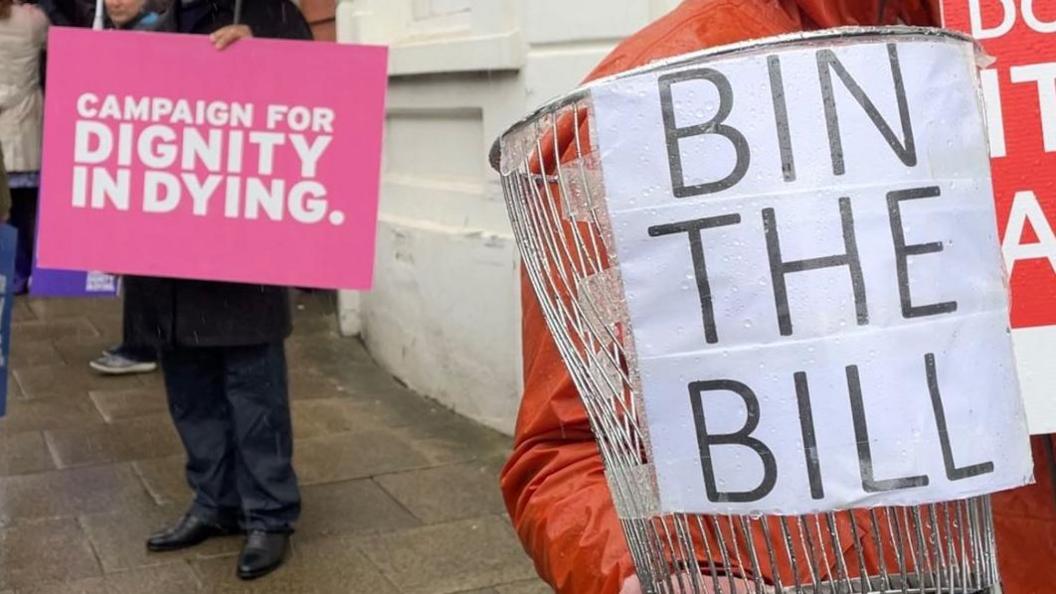
- Published1 July 2024
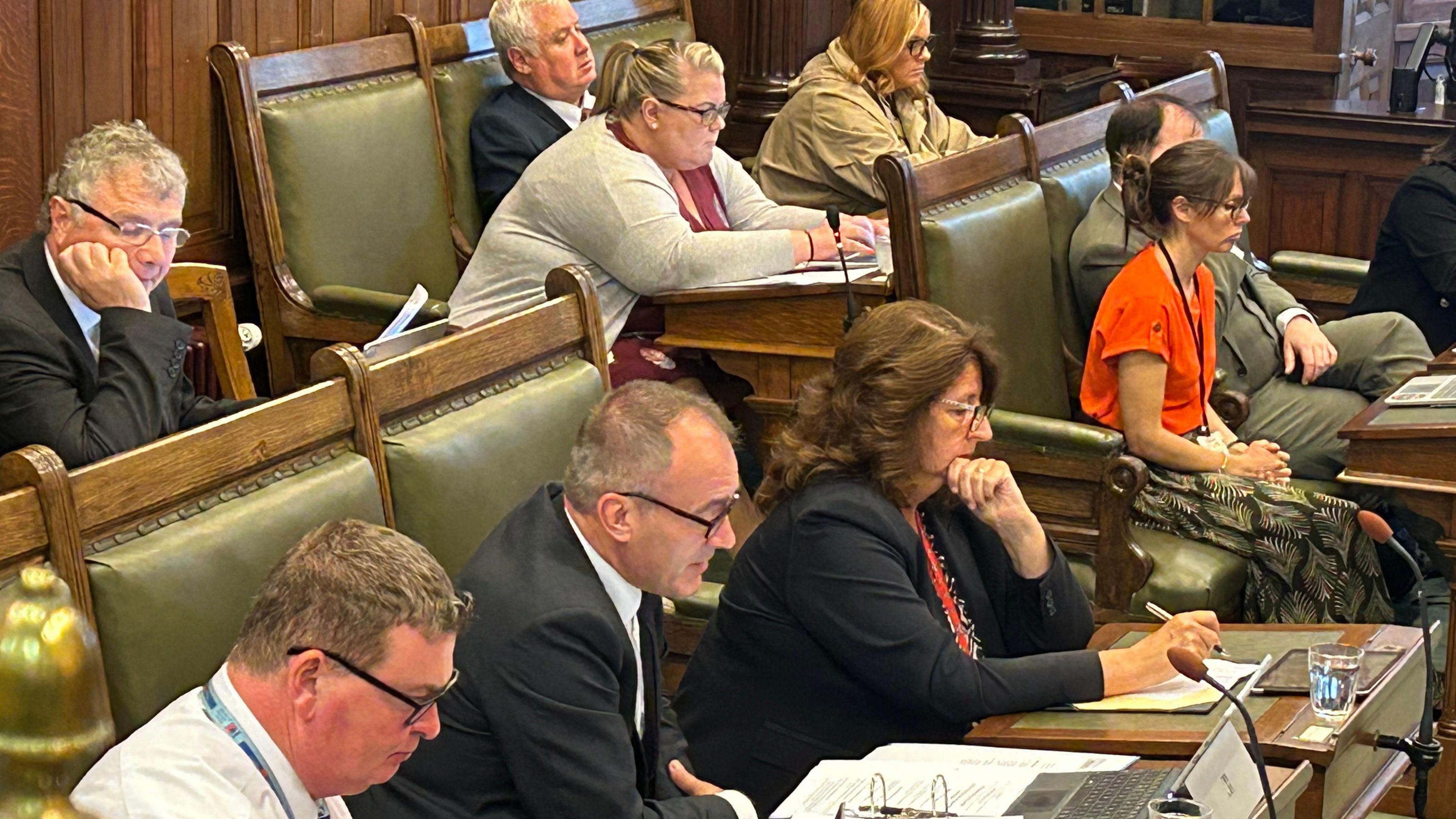
- Published1 July 2024
